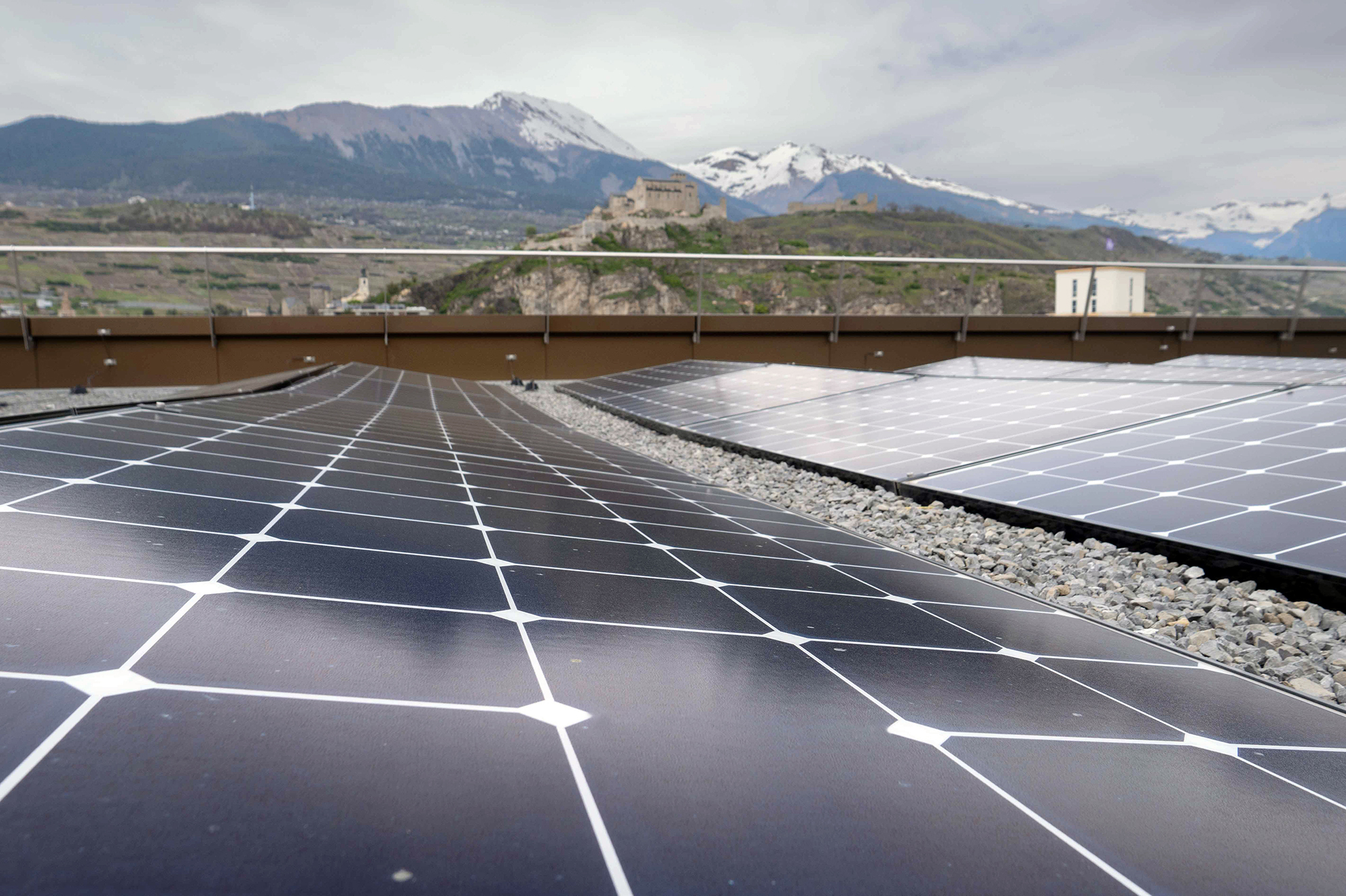Campus Energypolis aims to create links between research and industry and demonstrate that cutting-edge technology will make our towns and cities more self-sufficient and efficient in energy terms. This innovation hub in the heart of Valais brings together the research universities EPFL Valais Wallis and HES-SO Valais-Wallis with The Ark Foundation and a whole ecosystem of businesses. But what makes this site different is that it is effectively a full-scale laboratory. The three buildings on the site constitute an unrivalled demonstration platform designed to incorporate the entire value chain, from basic research through to industrial rollout. “We use the buildings to try out infrastructures being developed to convert, manage and distribute energy at district scale,” says Professor Jessen Page of HES-SO Valais-Wallis. Together with Professor François Maréchal of EPFL, he is working on the urban energy systems of the future.
One of the projects they are developing at Energypolis is the first low-temperature thermal network solution to use CO2 instead of water as its energy carrier. The technology – found nowhere else in the world – has been proven to work in a 450kW thermal network demonstrator that serves the buildings on the campus. Compact and easy to deploy, it guarantees high performance with a primary energy saving of 80% compared to fossil-fuel-based systems. This system is being developed by a partnership of research institutes, energy distributors (OIKEN) and local businesses including ZERO-C and ExerGo, a spin-off of EPFL.
This example is a perfect illustration of how Energypolis fosters the emergence and market readiness of innovations that bolster the energy transition. “On paper, scientists have shown that it is possible for cities to be energy self-sufficient,” says Professor Maréchal. “Here, we get confirmation that our calculations are realistic and achievable in practice and that these innovations can be profitably integrated into industry.” This testing ground is used to experiment with numerous concepts, working with, among other partners, the electricity producer and distributor OIKEN. Other energy infrastructures are also set to be trialled on the campus, including a new power-to-gas peak energy shaving system installed at the end of 2023.
“We invite anyone interested in plugging their own technology into our demonstration platform to get in touch so that we can look at how to incorporate, test and validate it,” say Professors Page and Maréchal. “This is a tremendous opportunity to demonstrate science at work.” Because Page and Maréchal are certain of one thing: combining technologies is the way to meet the energy transition goals.

Campus Energypolis